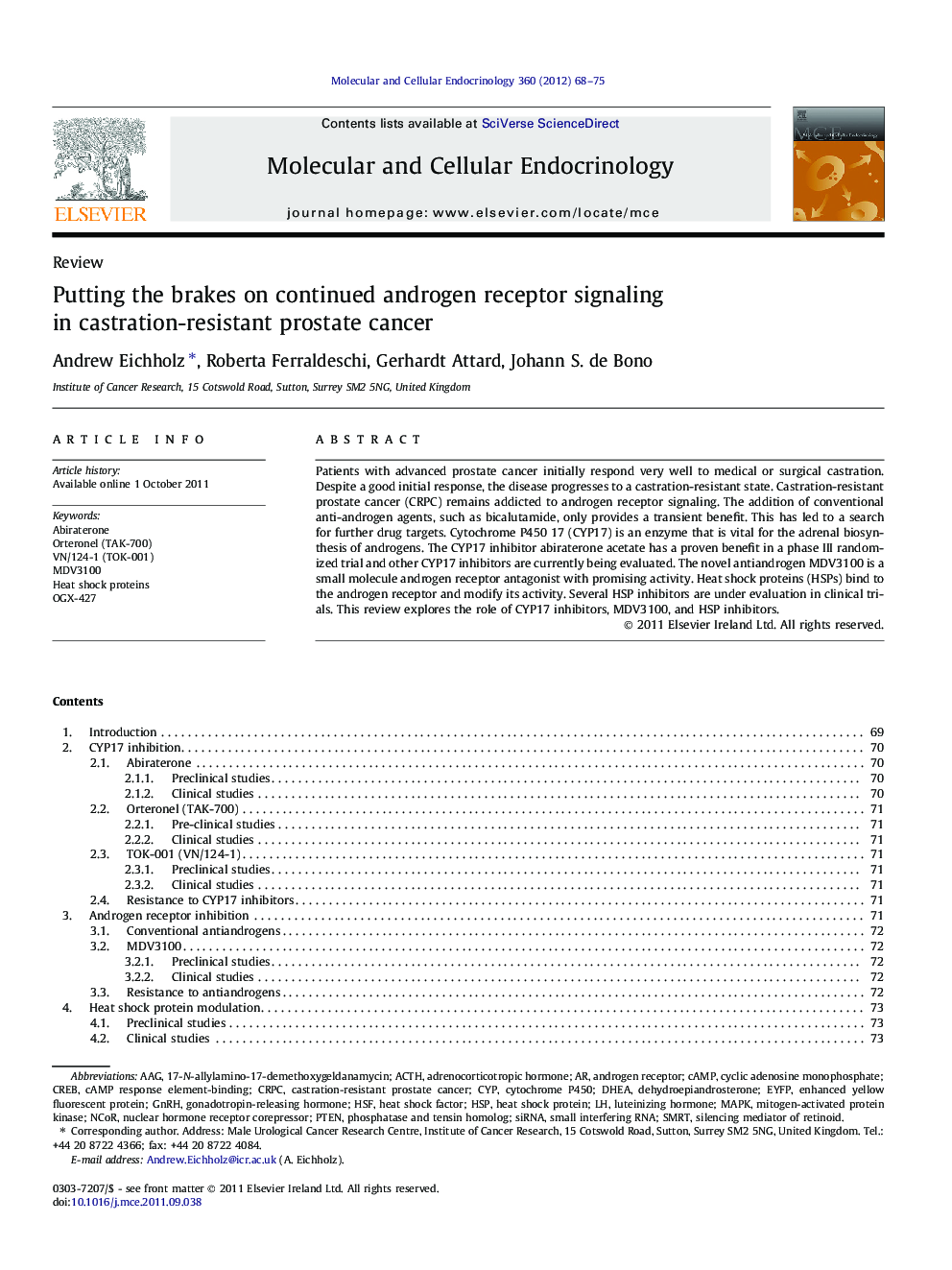| Article ID | Journal | Published Year | Pages | File Type |
|---|---|---|---|---|
| 8477670 | Molecular and Cellular Endocrinology | 2012 | 8 Pages |
Abstract
Patients with advanced prostate cancer initially respond very well to medical or surgical castration. Despite a good initial response, the disease progresses to a castration-resistant state. Castration-resistant prostate cancer (CRPC) remains addicted to androgen receptor signaling. The addition of conventional anti-androgen agents, such as bicalutamide, only provides a transient benefit. This has led to a search for further drug targets. Cytochrome P450 17 (CYP17) is an enzyme that is vital for the adrenal biosynthesis of androgens. The CYP17 inhibitor abiraterone acetate has a proven benefit in a phase III randomized trial and other CYP17 inhibitors are currently being evaluated. The novel antiandrogen MDV3100 is a small molecule androgen receptor antagonist with promising activity. Heat shock proteins (HSPs) bind to the androgen receptor and modify its activity. Several HSP inhibitors are under evaluation in clinical trials. This review explores the role of CYP17 inhibitors, MDV3100, and HSP inhibitors.
Keywords
CREB17-N-allylamino-17-demethoxygeldanamycinDHEAGnRHACTHSMRTAAGMDV3100AbirateroneCRPChsfEYFPdehydroepiandrosteroneHspNCoRCyPcAMPMAPKSmall interfering RNAsiRNACyclic adenosine monophosphatecAMP response element-bindingCastration-resistant prostate cancerCytochrome P450heat shock factorphosphatase and tensin homologadrenocorticotropic hormoneGonadotropin-releasing hormoneluteinizing hormoneHeat shock proteinenhanced yellow fluorescent proteinmitogen-activated protein kinaseHeat shock proteinsPtenAndrogen Receptor
Related Topics
Life Sciences
Biochemistry, Genetics and Molecular Biology
Cell Biology
Authors
Andrew Eichholz, Roberta Ferraldeschi, Gerhardt Attard, Johann S. de Bono,
